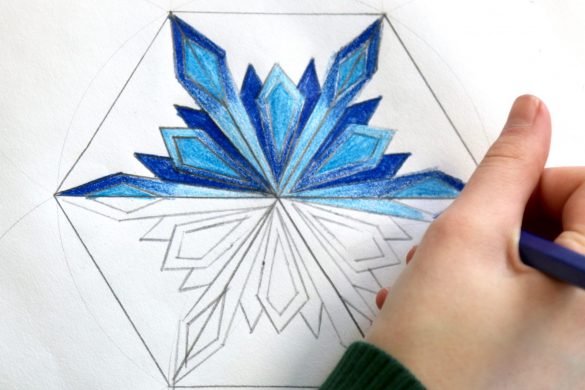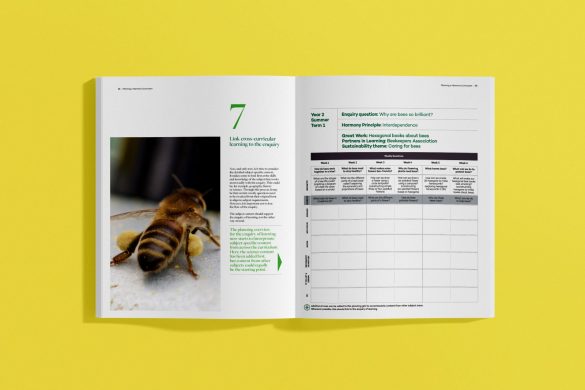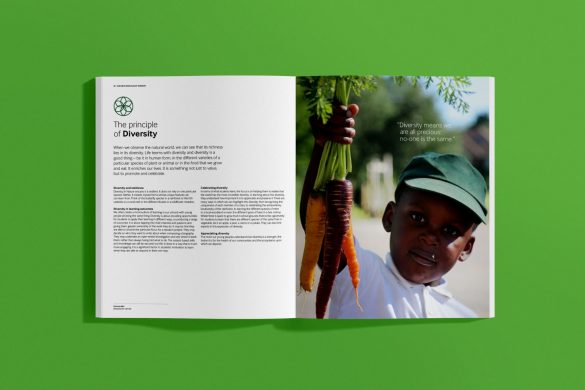How to plan an enquiry of learning

Start planning an enquiry of learning in four simple steps
Once a year group’s enquiries of learning are ordered through the school year, it is time to plan out each enquiry one by one in detail. Before referencing any subject-specific content, this medium-term plan should focus on a sequence of learning that, week by week, takes students on a journey towards a meaningful outcome.
1. Plan a sequence of learning within an enquiry of learning
A sequence of learning with a good flow to it can be created within an enquiry of learning using weekly questions, which act as the focus for the learning each week. If students are learning about a local river, for example, the first weekly question might reference the source of the river or look at water in droplet form, while the final weekly question might focus on the point at which the river reaches the estuary and the sea. The mix of fresh water and salt water at this point would create an ideal transition from an enquiry about a river to an enquiry about the oceans.
If the learning is about an ecosystem, be it a local woodland, a rainforest or Antarctica, the sequence of questions might be designed to enable students to see how each element within that ecosystem plays a part in ensuring the system is healthy and in balance. This helps students build up a good understanding of a harmonious, interdependent system at work. The final week’s learning might then focus on the human impact – positive or negative – on that system.
The sequence of weekly questions used to guide the learning in an enquiry of learning about bees, might look like this:
Year 2 Why are bees so brilliant?
- WEEK 1 How to best work together in a hive?
- WEEK 2 What do bees need to stay healthy?
- WEEK 3 What makes some flowers bee-friendly?
- WEEK 4 Why do flowering plants need bees?
- WEEK 5 What harms bees?
- WEEK 6 What can we do to protect bees?
2. Identify a purposeful and memorable celebration of the enquiry of learning
As the sequence of learning is discussed and developed, the other important aspect to consider is what the outcome of the learning will be. This outcome can be referred to as a Great Work (or given a similar title) and should be a celebration of what has been learnt over the half term.
This is central to giving the learning real purpose and will hopefully generate a sense of excitement in the students about what they are going to perform, present or exhibit at the end of the enquiry of learning. They may share this outcome with another year group, with parents or carers, with another local school (or a school overseas), or with the wider community.
A Great Work outcome could be the planting of an orchard of fruit trees or a wildflower meadow, the creation of a book, a poetry recital, the preparation and sharing of a meal or an exhibition of artwork, to give just a few examples.
3. Consider who could enhance or enrich the learning
Schools are busy places, and all too often we don’t reach out to partners in learning who could enrich or add value to learning. It can be useful at this point to think about who in the wider school community, the local community or beyond could enhance what is being taught. It may be that another member of staff with a specific skillset could play a lead role at a certain point, or a talented parent could share their knowledge and expertise on a particular subject. There may be someone outside the school community who could be invited in to run a workshop or answer questions linked to the enquiry. These partnerships can add great value to the quality of the students’ learning experiences.
4. Decide on a project to put sustainability learning into practice
With the enquiry journey now planned out (and before referencing subject-specific content), there is one final aspect of the planning overview to consider: What can we learn from this principle of Harmony that helps us to live more sustainably? This, after all, is the ultimate learning goal of a ‘Harmony curriculum’.
It may be that a class that is learning about wildflowers sows a wildflower meadow to support biodiversity, or that students who have been learning about the water cycle take steps to reduce their water consumption at school and at home – and help others to do the same.
With all these elements in place, it is time to start planning the Geometry activities that will introduce the learning each week over the half term.



